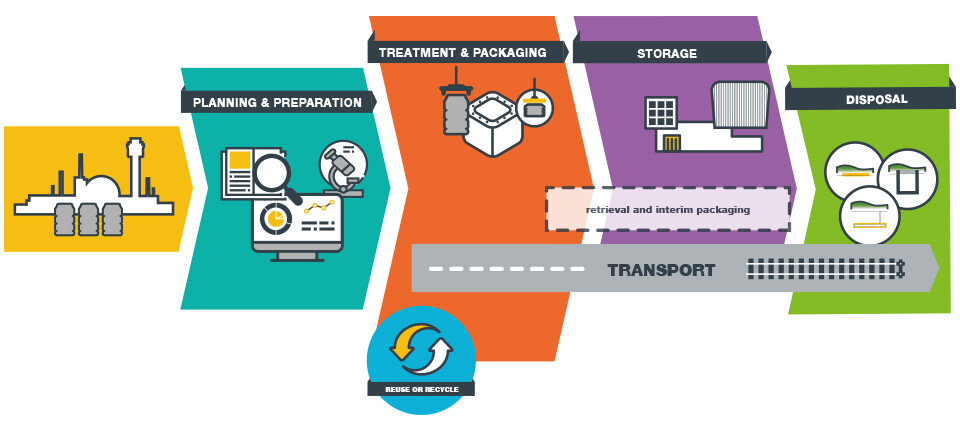Radioactive waste management refers to the safe treatment, storage and disposal of waste from nuclear industry operations, with the goal of protecting people and the environment.

The radioactive waste management lifecycle spans from the point of waste generation, through several stages such as classification, retrieval, conditioning, packaging, treatment, interim storage, and ultimately disposal, transitioning to the waste being considered as ‘out of scope’.
This Radioactive Waste Management Lifecycle area has been developed as an integrated radioactive waste information hub, providing access to a range of documents and resources for the nuclear waste management lifecycle. This area also shares information like definitions, descriptions, case studies, guidance and regulations across the radioactive waste lifecycle for England, Scotland and Wales.
Radioactive waste is an unavoidable by-product of the use of radioactive material and nuclear technology. Most radioactive waste comes from nuclear electricity production and military activities. Radioactive waste is generated in a number of different kinds of facilities, and it may arise in a wide range of concentrations of radionuclides and a variety of physical and chemical forms.
These differences result in an equally wide range of options for the management of the waste. There are a variety of solutions for processing waste and for short term or long-term storage prior to disposal. Likewise, there are various alternatives for the safe disposal of waste, ranging from repositories to geological disposal.